Ah, perfection.
Personally, I am quite fond of it.
That is, when it does actually happen.
And I think that one’s own concept of what perfection truly is will determine one’s own experience of it.
What are you striving for when you play guitar?
Perfection? And what exactly is your idea of perfection?
I have seen many different kinds of people with many different kinds of notions as to what perfection means to them. I think it would be prudent for you to clarify what the word perfection means for yourself.
How about this…
• Every note is accurate, every nuance is present, the performance is as good as it can possibly be.
or this…
• A simple joyful experience for yourself no matter how accurate or inaccurate the performance.
I enjoy having this conversation with players because it can almost always end up being a conversation that turns philosophical. This subject fascinates me and it also fascinates me how people are wired quite differently, yet in many ways, wired quite the same. Some people are more obsessed with perfection than others.
Where are you at with the concept of perfection?
Of course, higher performance standards are important if you are a career guitarist. If you are hired to play guitar for someone, then you want to be able to deliver the goods, as they say. And in this case, the definition of perfection is most likely going to be determined by who hired you to play.
But what if you just play as a hobby?
I’ve worked with students that are very anxious about doing a good job with anything in their lives and even though they decided to play guitar as a hobby just for fun, they quickly become overly concerned with being a “good student” and doing their homework and being able to demonstrate that they’ve been practicing, which usually means being able to play a piece or exercise perfectly.
This is usually a carry-over from the conditioning we all receive in school. Think about it- from preschool to PhD, your learning experience is based on performance & grades and then these grades have subsequent consequences. It can, and often does, create a very stressful neurotic mindset that affects our learning experience for the rest of our lives.
When guitar students are playing for me they often have a physical reaction to making a mistake… either exclaiming, “Oops”, or “Dammit!”, or “Sorry!”, as if their mistake somehow has insulted the listener in some way. I spend a fair amount of time de-programming people from this mindset so that they can have an enjoyable experience learning the guitar… on their own time schedule. Sometimes, it is more challenging for them to change their mindsets than it is learning musicianship skills.
It will make a significant difference in your own personal experience with your playing of the guitar if you define your conception of perfection looks like for what you are about to play. I address this point frequently in most of the articles posted in this blog.
And let me rephrase that first statement slightly- It will make a significant difference in your own personal experience with what your ideal experience would be in ANY given situation if you define your conception of perfection looks like for what you are about to DO.
How about substituting the word perfection with the word ideal? To me, an ideal represents the perfection one can strive for, yet it’s okay if it isn’t exactly reached. (Once again, semantics saves the day!)
I believe “Need nothing. Desire everything. Choose what shows up.” was quoted a couple of weeks ago.
And what about this…
How about having a “perfect” practice session that’s full of mistakes & failed attempts at reaching specific goals?
That goes against what most people’s idea of an ideal practice session. (did I just say, “idea of an ideal”? oy)
But isn’t significant progress often preceded by failure at many attempts?
Who here knows that Thomas Edison quote?…
Now I think for most of us, the ideal practice session would be to try something out & have it be perfect the first attempt. Wouldn’t it?
How often does that happen for you? It can indeed happen… but it is more likely that multiple attempts will be required to achieve the ideal, if it is achieved at all. It all depends on many factors.
How do you feel when you’ve had a practice session that seemed the opposite of perfect?
When you go to play something new for yourself, I suggest being open to perfection the first attempt and if it doesn’t happen, be okay with that.
In his book, Effortless Mastery, Kenny Werner has a very interesting practice model that involves segmenting the goals of what you are practicing into four components:
1. Play Effortlessly
2. Play Fast
3. Play Accurately
4. Play the Entire Example
He calls it, “The Learning Diamond“.
(you’ve always got to name your educational concepts, ya know)
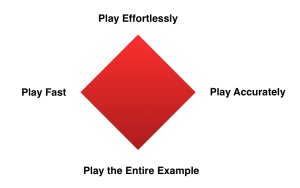 The idea is to practice a piece of music while focusing on only three aspects at time, and one of the aspects has to be, “Play Effortlessly”.
The idea is to practice a piece of music while focusing on only three aspects at time, and one of the aspects has to be, “Play Effortlessly”.
What this means is that you can let go of either speed, accuracy, or length, while focusing on the other two as you stay calm & relaxed & focused & detached… you know, effortless.
For example…
Play the Entire Example + Play Accurately + Play Effortlessly = let go of Playing Fast (play it slooooowly)
or…
Play the Entire Example + Play Fast + Play Effortlessly = let go of Playing Accurately (weird, huh? but give it a try for just a few times)
or…
Play Fast + Play Accurately + Play Effortlessly = let go of Playing the Entire Example (play a short amount of it… even if it means just two notes)
Kenny’s purpose with this approach was to keep the effortlessness component a part of the experience at all times, (what he calls, “The Space”). This is essentially what the whole book is about… achieving The Space. He goes into great depth as to what this really means. For this discussion, let’s just make “The Space” about you wanting to always keep it calm & relaxed & focused.
So, in a sense, using this practice model, you are chunking down perfection into individual components that you can then focus on in a way that makes achieving the perfection possible. Then you can put the components back together and go for all of it- length, speed or accuracy, while staying calm & relaxed & focused & detached.
(Note: In the book, he says” Play Perfectly” instead of “Play Accurately”… I just thought accurately made more sense since I’ve been using the word perfectly in other contexts here.)
I highly recommend Kenny’s book. It changed my life when I read it. It addresses all the fears artists tend to have and then offers an approach for performing at your highest level. And there’s even a CD of guided meditations.
(favorite guided meditation moment: when he drops his pen on the piano… so not perfect!)
I hope theses thoughts & concepts help you cultivate a mindset that enhances your efforts towards guitar excellence.
As always, I encourage you to share your own experiences with all things guitar in the comment section below.
PS-
Alternate blog title: Absolute Perfectionism at Its Finest
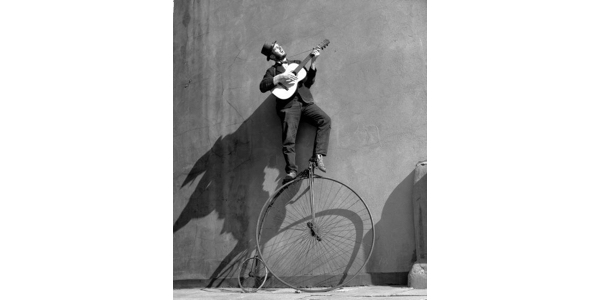
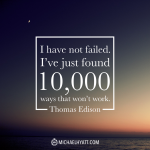
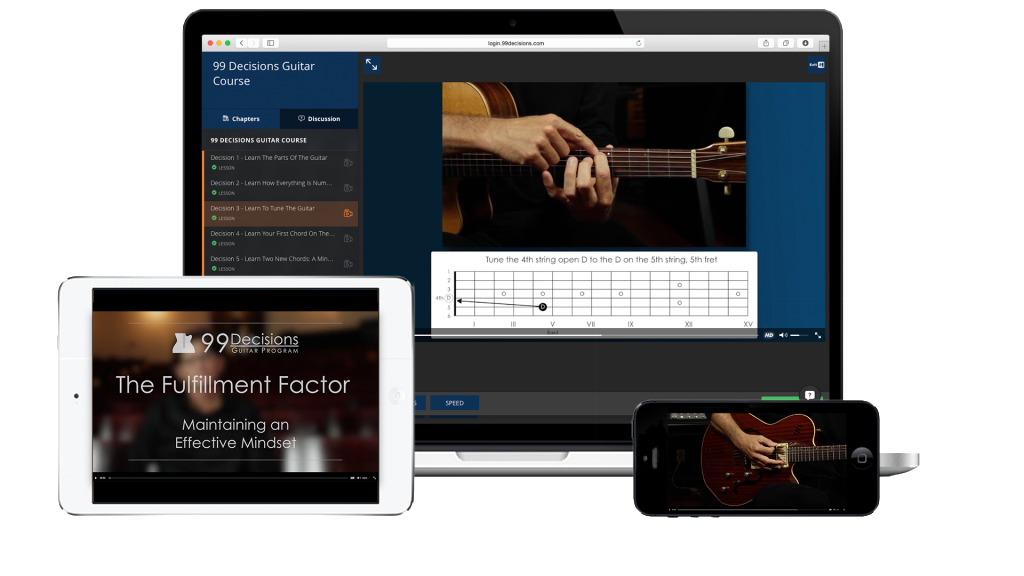
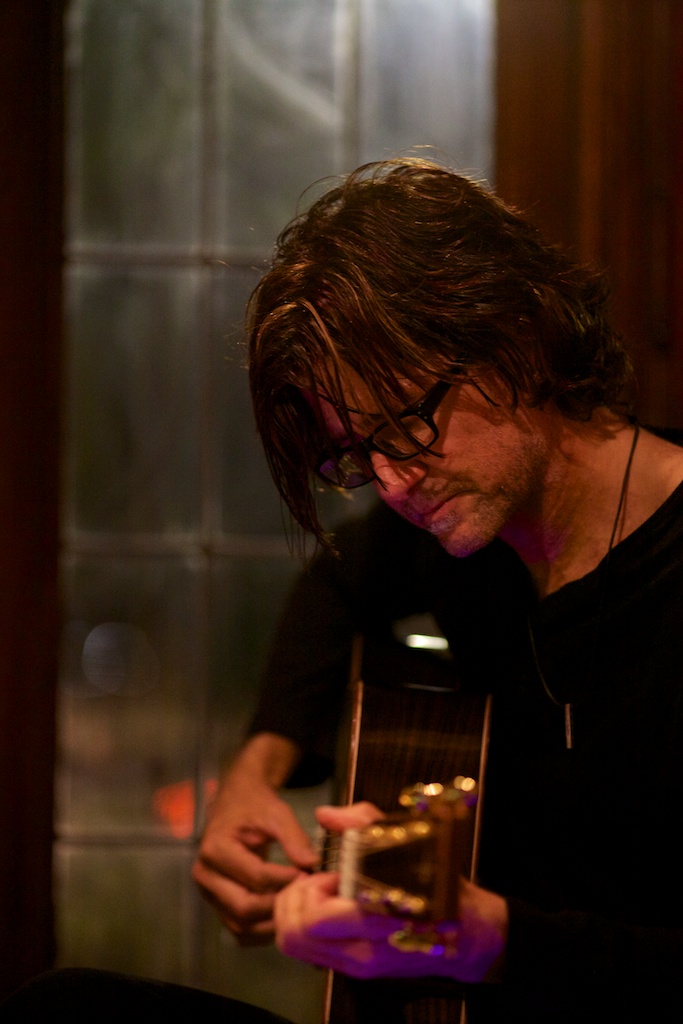
Leave A Response